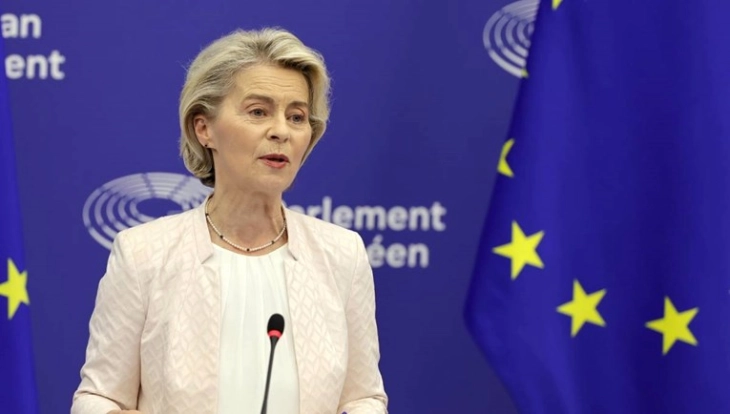EU countries nominate just eight women to European Commission
- With the official Belgian nomination of Foreign Minister Hadja Lahbib on Monday, just eight women were put forward by EU countries to serve as Commissioners in the European Commission.

Brussels, 2 September 2024 (dpa/MIA) — With the official Belgian nomination of Foreign Minister Hadja Lahbib on Monday, just eight women were put forward by EU countries to serve as Commissioners in the European Commission.
European Commission President Ursula von der Leyen is now likely to lead a male-dominated commission after all 25 nominatations were submitted.
After her reelection in July, von der Leyen asked EU countries to nominate both a man and a woman in order to achieve a gender balance in the commission.
The only exception granted to this request was for governments that re-nominated a sitting commissioner like France, Hungary and Latvia have done.
Von der Leyen requested EU countries to submit a male and female candidate to achieve gender parity but more than half of EU governments put forward only one male candidate.
If the nominations do not change, and candidates are ultimately successful in joining the EU executive arm, men could make up around two thirds of the new European Commission cabinet.
Only Bulgaria publicly proposed a man and a woman. Sofia announced on Friday that it would nominate former foreign minister Ekaterina Zakharieva and former environment minister Julian Popov.
Each of the commission's 27 members may nominate one commissioner. Von der Leyen, who is German, is included in this figure.
Currently, 12 of the 27 commissioners are female. The commission is the EU's powerful executive arm. It proposes new laws and monitors compliance with EU treaties and employs around 32,000 people.
Despite von der Leyen's likely irritation, EU countries are not legally obliged to comply with von der Leyen's request to nominate both a man and a woman.
EU treaties do not explicitly mention gender parity only that the commission reflect the EU member states demography and geography as a whole.
However, it is still conceivable, for example, that some of the candidates will not receive the necessary approval following hearings by committees of the European Parliament.
EU countries concerned would then have to propose a new member for the commission. It would also be possible for von der Leyen to ask them to reconsider their nominations in advance.







